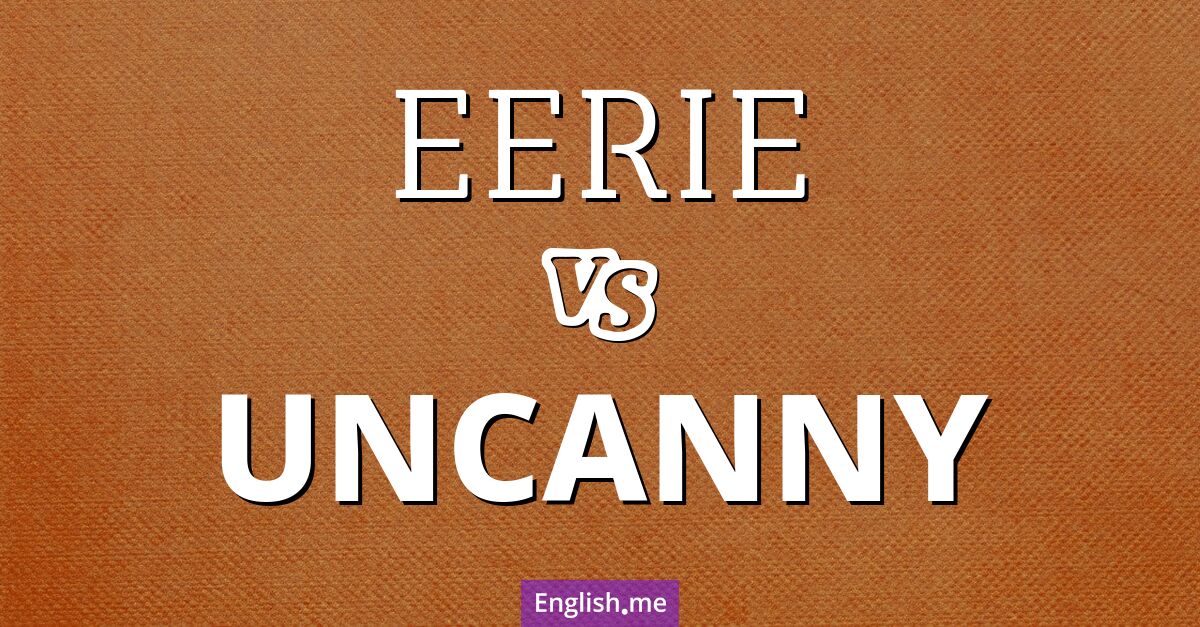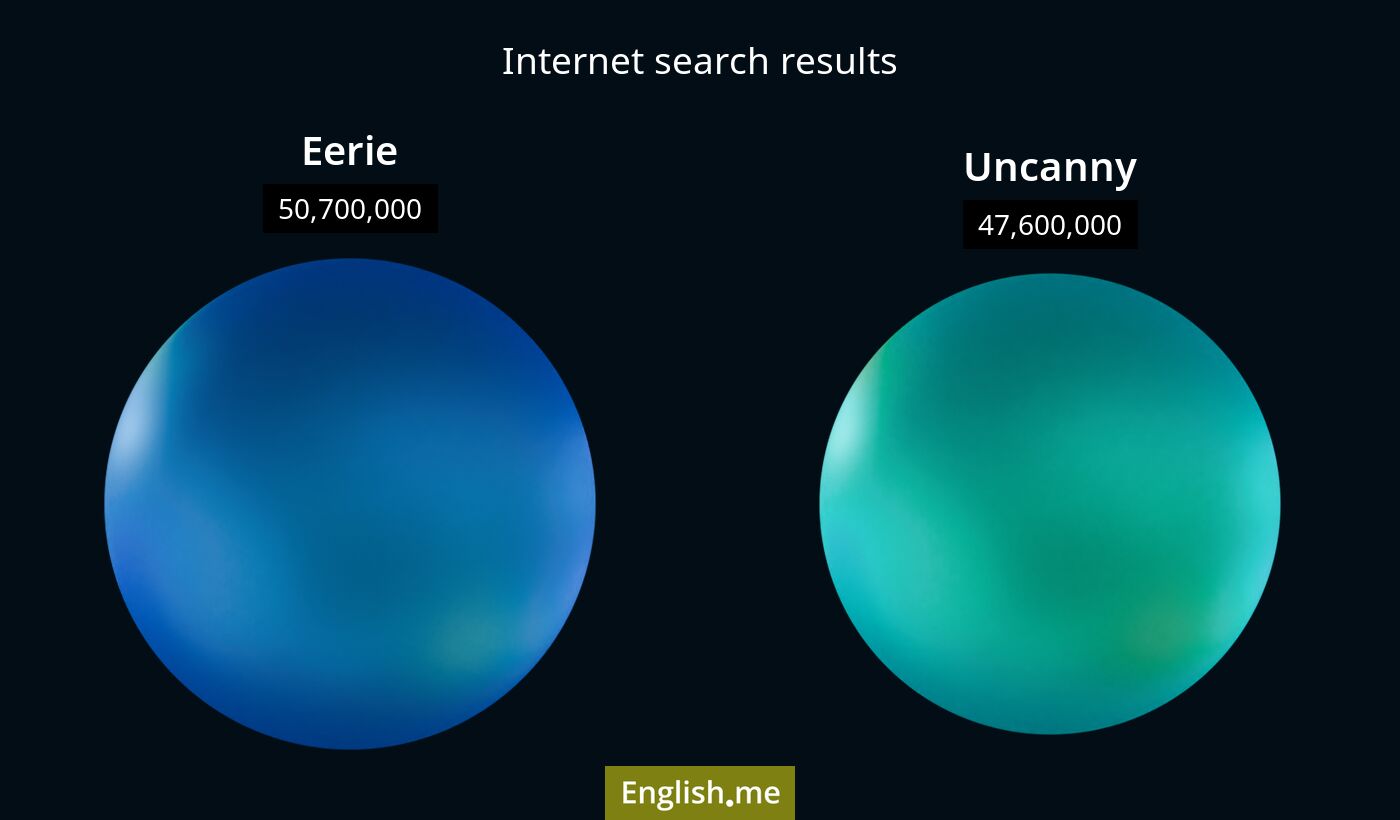Exploring the unnerving charm: "eerie" vs. "uncanny"
Reviewed and edited by  Lloyd Cooper 29/09/2024, 17:03
Lloyd Cooper 29/09/2024, 17:03
English.me team member

 What is similar?
What is similar?
Both "eerie" and "uncanny" describe something that is strange or unsettling, often invoking a feeling of unease.
 What is different?
What is different?
Eerie typically refers to a spooky atmosphere, often with a focus on a sense of supernatural or mysteriousness. Uncanny often implies a deeper, almost paradoxical or inexplicable oddity, sometimes related to something familiar made strange.
 Which one is more common?
Which one is more common?

 Examples of usage
Examples of usage
Eerie- The abandoned house at the end of the street had an eerie silence about it.
- An eerie mist rose from the old graveyard as night fell.
- Her resemblance to the late actress was uncanny.
- There was an uncanny similarity between the two unrelated stories.

 English
English español
español française
française italiano
italiano deutsche
deutsche 日本語
日本語 polski
polski česky
česky svenska
svenska Türkçe
Türkçe Nederlands
Nederlands